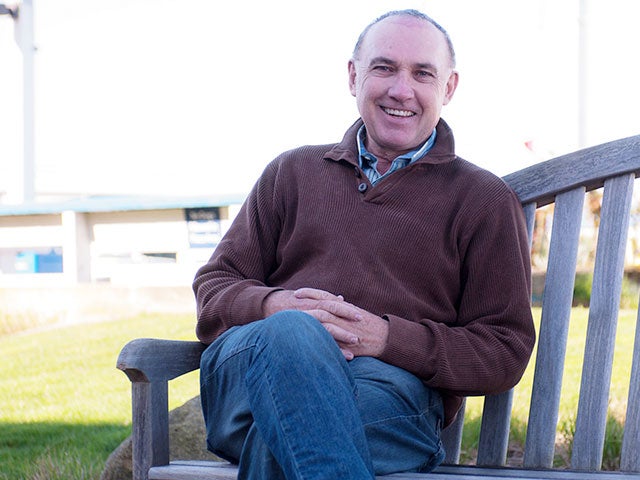Feelings: Your Path to Healing

I'm a softie. I feel everything. Believe me, there are days when I wish I wouldn't feel a thing.
I'm sure you've heard the saying, "Like water off a duck's back." Those using that saying are telling us we can hit them between the eyes with a feeling and they won't even notice it.
Like I said, there are days when I would like to be that person. On those days I wish the rejection I feel would disappear. I wish the loneliness that creeps up on me would vanish. I regret my regrets.
But then I grab hold of myself and remember how I've been made--to feel just about everything. I also remind myself that every feeling can be helpful to guide me to seek after what might be missing in my life, whether that be comfort, friendship, compassion or forgiveness.
Most of us have certain feelings we'd much rather live without. Like walking through a buffet line, we say, "I'll take two spoonfuls of those Joy feelings, three helpings of Happiness and a dab of Excitement. Hold the Discouragement please, and I really don't like Sadness. I don't want any of that."
If it only worked that way.
What I've found is we can learn to reject feelings, but in doing so we reject ALL feelings. When we turn up our nose at Discouragement and Sadness, we actually dampen our capability for feeling Joy and Gratitude.
This is not the worst of it, however. We all have wounds from childhood, adolescence and even adulthood that require healing, and if we can't feel it, we can't heal it. If we won't spend time listening to our feelings, we will never know what we need for healing.
"I don't know why," Jessica said to me during a recent counseling session, "but I just don't want to feel sad anymore. I've had enough sadness in my life and I'm not going to feel it anymore. My husband has hurt me deeply and I just don't want to think about it."
Jessica's husband's pornography addiction had caused her to separate from him. Sickened by her discovery of his "stash," she was decimated. She had slipped into a lingering depression and feelings of bitterness she could not shake.
"I don't want to be near him," she said. "And yet I still love him. I don't know what to do with my feelings. So, I push away from him."
"Yes, I think that is what you do," I said. "It's common for people to push away from feelings they can't understand. They feel overwhelmed by their feelings, and so suppress them. In fact, some therapists call that 'exiling' our feelings. We send them to Outer Siberia, but they're still rumbling under the surface."
"So, why can't I just let them rumble alone?" she asked. "I don't need to think about them, do I?"
"Do you really think your sadness and hurt are just going to go away just because you ignore them?" I asked.
"I suppose not," she said slowly. "But boy, I wish they would."
Jessica and I spent the next several sessions talking about her history of pushing away pain. Raised by alcoholic parents, she shared how she had been left to raise her two younger siblings while her parents worked days and drank during the evenings. She hadn't thought it was so bad at the time, but in retrospect she could see that there was never anyone there to listen to and 'sit with' her feelings. Subsequently, she didn't know how to attend to her own feelings.
We worked on several ways that would help her heal from her immediate pain with her husband, as well as childhood trauma she hadn't fully accepted.
First, your feelings are an integral part of your nature.
Given to us by God, our feelings are natural and make us very human. Our emotional pain, while messy, are where we live. They make us so very human and easy to relate to. They also inform us of what is taking place in our lives.
Second, you must acknowledge your emotional pain.
This is not an easy process, especially if you've spent years denying your pain. You must spend time looking inward, practicing identifying feelings. It will likely take working with a professional counselor to help you do this.
Third, learn to name your feelings, attending to them.
Like lost children, your feelings need loving attention. Just as you would with your own children, you sit with these nearly forgotten parts of your Self. Rediscover Sadness, Hurt, Rejection, Abandonment and Rejection. Tend to them and care for them. Hear what they have to teach you.
Fourth, practice listening to these feelings.
What do they have to say to you? For example, perhaps you are terribly sad about patterns of interaction with your mate. Perhaps you've been abandoned for years and haven't truly acknowledged it. Perhaps you feel Fear, and need to listen to what Fear has to say to you. Acknowledge being frightened and listen carefully to what you need to feel safe.
Fifth, discover what needs attention and must change.
Our feelings are powerful indicators of what is missing in our lives. Loneliness, for example, tells us we need companionship. Hurt tells us we need comfort. Sadness tells us we need to mourn losses. Fear tells us we need support and ways to courageously face a situation. You may also need to make changes in your life so you feel safe and secure.
Finally, ask God for guidance.
While our feelings need attention, we are not to be ruled by them. Ask God for guidance on what needs to be changed in your life. Seek His guidance on attitudes that need attention, forgiveness that must be given and reconciliation with others that is required.
God wants to bless you and uses all of our feelings, including losses and hurts, to bring you closer to Him (Jeremiah 29:11). You need not keep any aspect of your past or present a secret. As you feel your pain, God can heal your pain.
